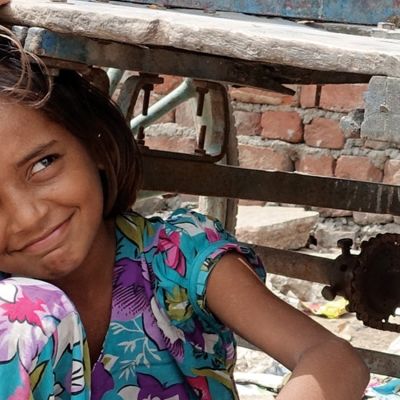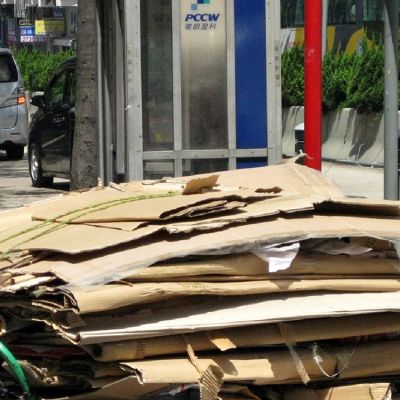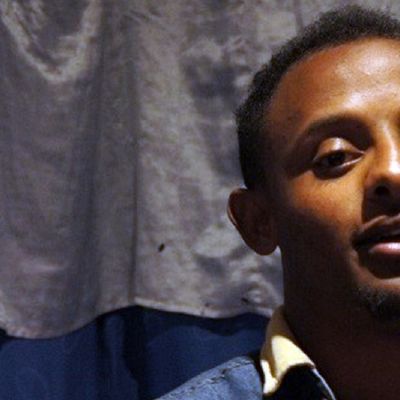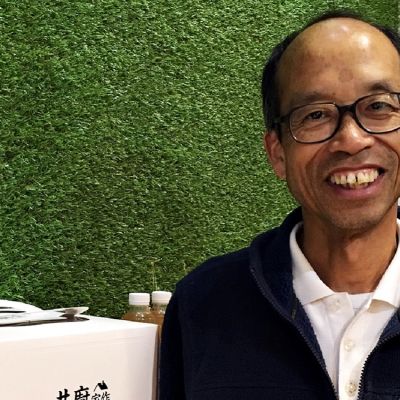Children are the hope of our society, and most parents would stop at nothing to provide the best for their growth. However, life is different for the children born in the slums who struggle to obtain necessities daily, consequently giving them more obstacles to a bright future.
Our partner in Ethiopia, the Addis Ababa Guenet Church (AAGC), has been tasked to giving the slum children and their families a better environment for over 20 years.
AAGC provides basic living, education, and health support to the children admitted to their programme, and it holds regular parent self-help groups where they would learn how to manage their finance and do business, to give them a more stable income. It keeps contact with the children who graduated from the programme and continues to walk with them through each of their important life stages.
Abraham Tadasse, the head of the graduate relations of AAGC, is a dear friend of multiple graduates of the programme. He and other staff are often invited to the graduates’ weddings, and are even looked up to as their parents to whom they could share the joy and sadness in life.
Abraham was grateful that the children of poverty in the past could grow into men and women that could support their families; He was especially touched to see the changes in child after child, and family after family. “There was a time when I was waiting for taxi, and I came across a programme graduate. She mentioned that I taught her to work hard in improving her own financial conditions, and it became her motivation till that day, where she was in pursuit of a second degree.” She insisted to pay for Abraham’s trip when they parted ways. It is through these encounters that our Lord has continued to bless the staff and the beneficiaries of AAGC.
Estifanos Menchegerot is another graduate of the programme who expressed tremendous appreciation to Mesker, one of the social workers at AAGC. He was a troublesome and hyperactive kid who was put under the patient care of Mesker, who regularly visit his home in the slums. Estifanos slowly improved over the years, and he has just recently graduated from the Bahir Dar University, majoring in fashion design, and was given the job of an assistant lecturer. He kept a close relationship with Mesker and wished to give back to AAGC to help more children who had similar experience as his.
There is still a disheartening amount of children struggling to flourish in the suburbs, who could see little hope in their future. However, it is through the persistent care of the likes of AAGC that we could see tangible changes in the slum children that really gave them hope.
Content of this issue
Interviewing and editing: Canace Chiu & Tsun Wan Yan The rapid economic growth of India did not significantly reduce its population living in poverty. Although halved from the 90’s, the number of poor people living in India still reaches 600 million, with 300 to 400 million of them living under extreme poverty. The country is not spared from the plethora of social problems experienced by other developing countries, such as a large income gap and rural-urban migration. CEDAR hopes to share with you the stories that took place in the lesser known areas of India, and we wish you could remember the suffering people and God’s servants in your prayers in this New Year season. Love among the…
Author: Dr. Chan Nim Chung (CEDAR Board Member) A common response to Jesus’ words in Matthew 26:11 that we often hear is that, “Why should we prioritize helping the poor over evangelizing?” Such argument has dwindled in recent years (people might just have been too embarrassed to talk about it publicly) until Rick Perry, one of the 2016 US president candidates, Texas’ former head of state, and a conservative Christian, definitively reciprocated the exact thoughts while being interviewed by the Washington Post about the large income gap in Texas. Today we are going to take a closer look into some possible explanations of this verse. The Bible did not treat poverty in urban and rural areas separately, hence…
Children are the hope of our society, and most parents would stop at nothing to provide the best for their growth. However, life is different for the children born in the slums who struggle to obtain necessities daily, consequently giving them more obstacles to a bright future. Our partner in Ethiopia, the Addis Ababa Guenet Church (AAGC), has been tasked to giving the slum children and their families a better environment for over 20 years. AAGC provides basic living, education, and health support to the children admitted to their programme, and it holds regular parent self-help groups where they would learn how to manage their finance and do business, to give them a more stable income. It keeps…
Interviewing & Editing: Tsun Wan Yan The acts of distributing necessities and visiting elder homes are still the dominant means of social involvement for some of the churches and Christian groups in Hong Kong. Mr. Mok Hing Luen (Sir Mok), a veteran in the field of Hong Kong’s social involvement and social work education, thinks that there are much more we could do to our society. “The church is complacent in giving the resources it has received from God to the people it sees that has a need,” said Sir Mok, who argues that such a downstream mindset of social involvement and poverty solving adopted by churches is self-limiting. But first we must cease boasting our roles among…






